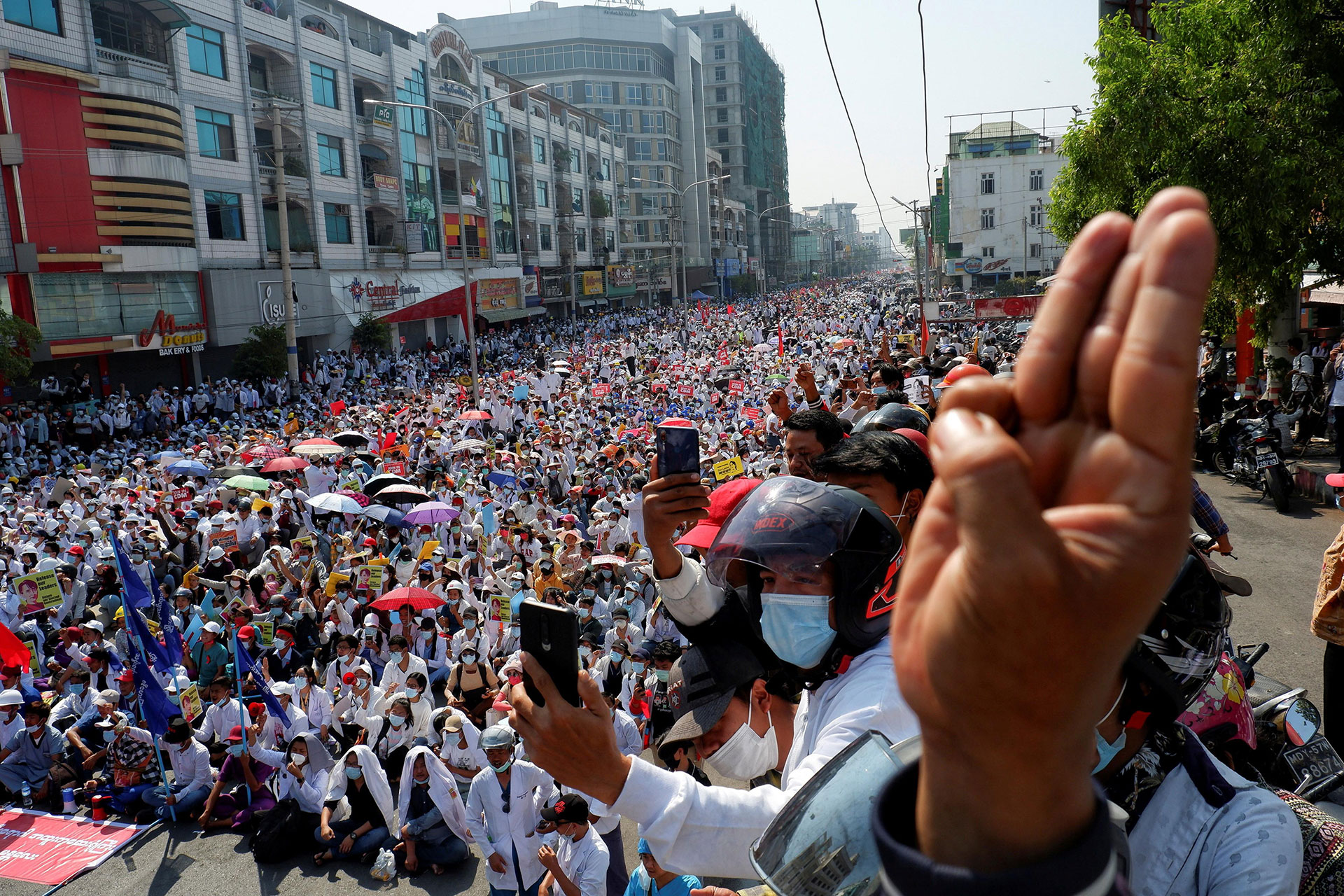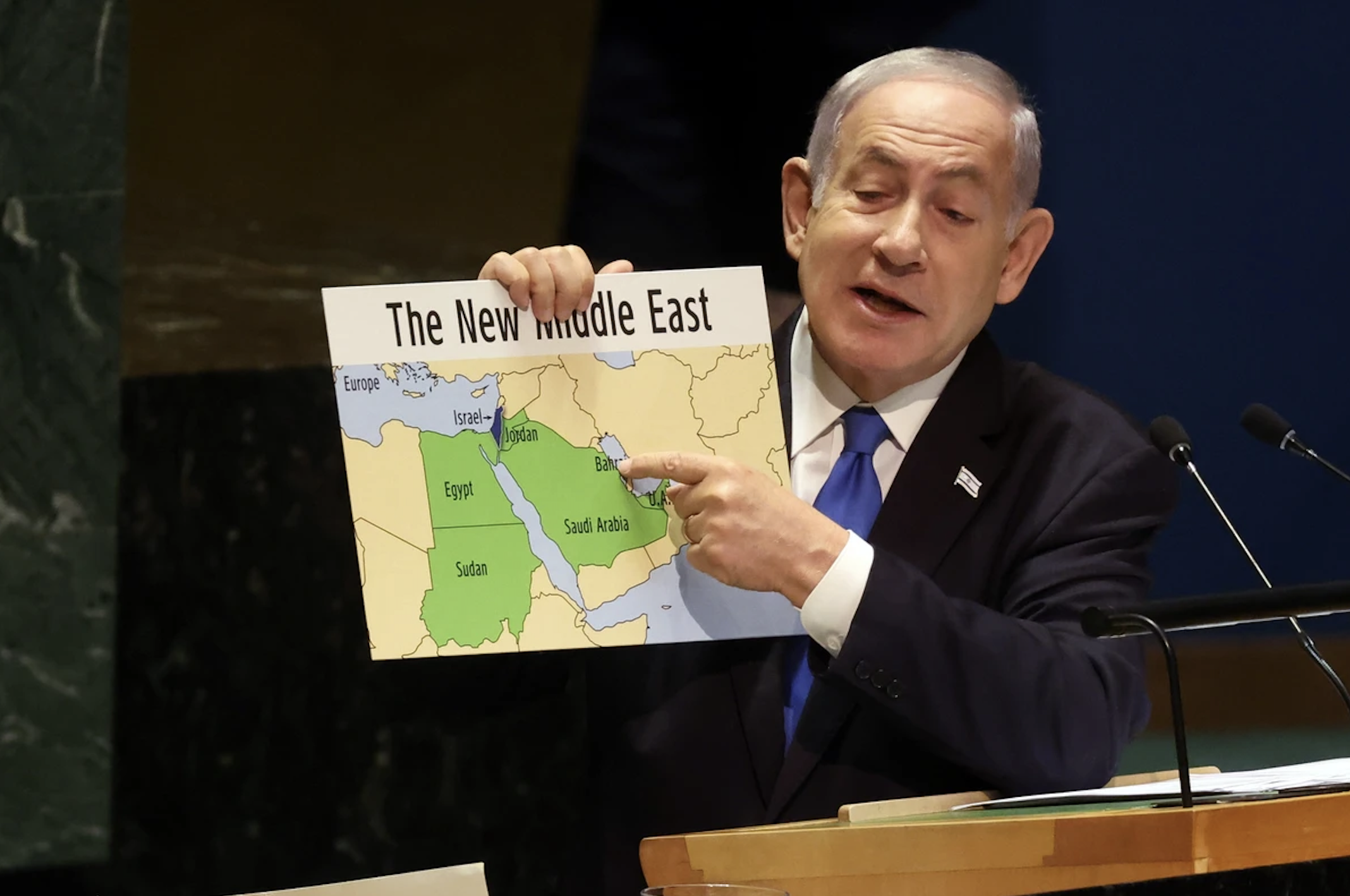Attacks on Yemen could open Middle East’s pandora’s box

On January 11, as South Africa was presenting its case against Israeli genocide in Gaza before the International Court of Justice (ICJ) in The Hague, on the opening day of the two-day hearing, Israel unabashedly continued unspeakable atrocities in the Gaza Strip, with incessant bombings resulting in the killing of more than 100 individuals. The death toll reportedly stands at nearly 24,000 now since October 7, including more than 10,000 children.
But that is not all. In the wee hours of Friday, the US and UK launched a joint multi-pronged military assault against Yemen, attacking at least 16 sites in 73 strikes and killing at least five people.
While the US, the UK, and their Western allies—none of whom backed South Africa's timely and rightful case against Israeli genocide in Gaza—defend the attacks as "defensive action," adding that, "These targeted strikes are a clear message that the United States and our partners will not tolerate attacks on our personnel or allow hostile actors to imperil freedom of navigation in one of the world's most critical commercial routes," there is no denying that the strikes are disproportionate, provocative, and highly irresponsible.
First of all, the actions of the Houthis must be properly contextualised. The Houthis' attempts to prevent Israeli trade through the Red Sea, by restraining the movement of commercial ships aiding the rogue state's trade activities, were aimed at stopping the bloodshed in Gaza. As a Houthi military spokesman said, "The Yemeni armed forces continue to prevent Israeli ships from navigating the Red Sea (and Gulf of Aden) until the Israeli aggression against our steadfast brothers in the Gaza Strip stops." That Yemen's actions were in solidarity with the Palestinians, and were only aimed at inflicting economic damage on Israel, is clear. It must be noted here that the Houthi interventions in the Red Sea did not result in any fatalities. In terms of Yemen's logistical capabilities, they are no match for the military might of the US in the region.
If anything, the deployment of US warships, air carriers, and nuclear-powered Ohio-class submarines in the Middle East are more provocative—and will embolden Israel in its genocidal actions against Palestinians—than the Houthi actions against Israeli ships.
Unsurprisingly, the US did not fail to seize this opportunity to mount disproportionate retaliatory aggression against the Houthis, in a country that is already plagued by impoverishment, famine, and internal strife.
The US and UK strikes in Yemen have only aggravated the possibility of large-scale conflict in the already volatile Middle East. It is well-known that the Houthis are backed by Iran, which is accused by the West of enriching uranium at a steady pace since the US unilaterally pulled out of the Joint Comprehensive Plan of Action (also known as the Iran nuclear deal)—without presenting any valid justification for its move—in 2018.
As recently as December 26 last year, UN nuclear watchdog International Atomic Energy Agency (IAEA) reported that Iran is enriching uranium at 60 percent purity, which is close to weapons-grade enrichment. If this is true and Iran is indeed closer to developing nuclear weapons, shouldn't the US and UK have been wiser and not attacked Iran's proxy in the region?
Iran must be commended for acting with utmost restraint and caution in the face of the provocative rhetoric coming from the US and Israel since 2018, to the extent that it did not retaliate against the Israeli government's threat to "wipe" Iran and its ally Lebanon "off the face of the Earth" should the Lebanese Hezbollah open up a northern front in the Hamas war.
Iran's patience, however, should not be tested. Israel has already killed Sayyed Razi Mousavi, Iran's top military advisor, in what has been deemed a targeted assassination attempt. Israel's strikes against Lebanon are also resulting in the killing of Hezbollah fighters, Lebanese civilians, and the displacement of thousands. Coupled with the latest strikes on Yemen, these look like US-Israeli provocations in the region. The sporadic and unjustified attacks in Iraq, Syria, Lebanon, and Yemen—as heat from public anger pushes the limits of the Middle Eastern barometer, along with the US' significant military build-up in the region and the Israeli government's vitriolic rhetoric and provocative actions—have Middle East experts concerned about the West's endgame in the region.
The timing of the US-UK strikes in Yemen is also tricky. It comes just as South Africa presented the case against Israel in the ICJ. The possibility of the attacks being a means to distract the ICJ and world community's attention from Gaza cannot be overruled. Since Israel does not have a solid defence—the ICJ is the principal judicial body of the UN and at least 101 UN staff have been killed in the Gaza conflict—in the face of ample evidence of its genocidal intent and subsequent actions in Gaza, it is perhaps trying to find a way out of the substantiated accusations through other means.
To give the US the benefit of doubt, even if it carried out the strikes against Yemen solely to "defend" its interests in the Red Sea, the attacks are nonetheless irresponsible, reckless, and provocative and could potentially push the region to the brink of a large-scale conflict. It is difficult to fathom how the US—equipped and empowered with multiple intelligence wings—could make such an injudicious move at such an inopportune time, unless its intention is to escalate conflict in the region, which it has successfully done in the past with disastrous results.
By arming the genocide against Palestinians in Gaza, the US has already earned the reputation of being a genocide enabler. The country's shameful travesties in Afghanistan, Syria, Iraq, and Yemen point to its complete military and intelligence failure in long-distance warfare. It risks becoming a pariah, just like its ally Israel, if it continues aiding and abetting bloodshed in the Middle East.
Ahead of the US' November election, the Biden administration is facing mounting internal pressures, which it would do better to focus on than waging an avoidable war in the Middle East. That is, unless this, too, is part of their election campaign. In which case, should the US' actions also be tried before the ICJ? In any case, the US and its allies, including Israel, will have to shoulder the responsibility and consequences of any escalation in the Middle East as a result of their incessant and uncalled-for provocations.
Tasneem Tayeb is a columnist for The Daily Star. Her X handle is @tasneem_tayeb
Views expressed in this article are the author's own.
Follow The Daily Star Opinion on Facebook for the latest opinions, commentaries and analyses by experts and professionals. To contribute your article or letter to The Daily Star Opinion, see our guidelines for submission.




 For all latest news, follow The Daily Star's Google News channel.
For all latest news, follow The Daily Star's Google News channel. 



Comments